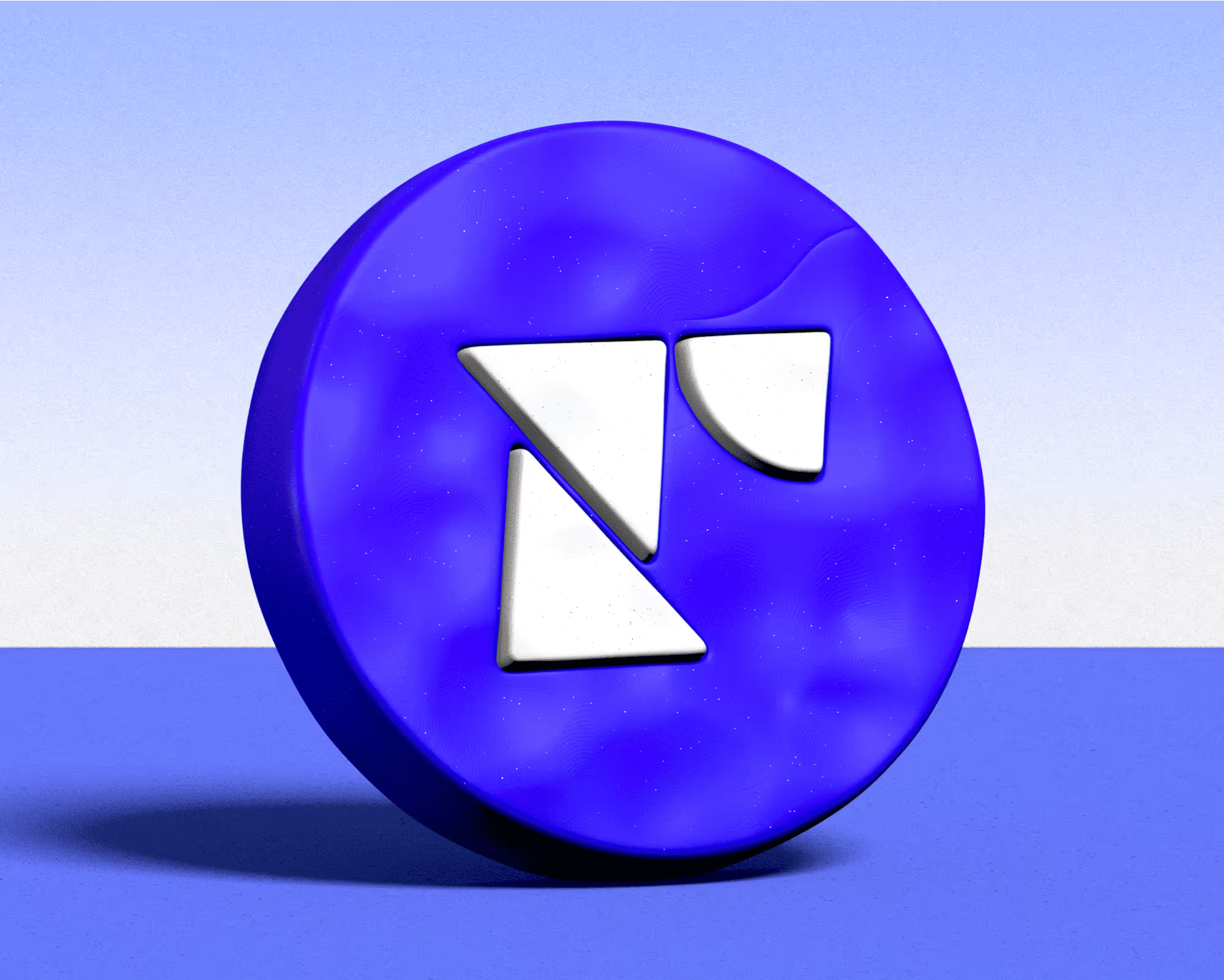Lead Enrichment
Lead enrichment is the process of supplementing existing lead data with additional, relevant information to create a more complete profile of a potential customer. This additional data, which often includes firmographic and demographic details, helps sales and marketing teams better understand, qualify, and personalize their outreach. By filling in these informational gaps, businesses can improve the accuracy and speed of their sales funnel.
Benefits of Lead Enrichment
Lead enrichment provides a robust data foundation, allowing teams to automate and refine their sales and marketing processes. By appending fresh, accurate data to lead records, businesses can significantly improve efficiency, leading to several key advantages.
- Qualification: Improves lead scoring and routing for better prioritization.
- Personalization: Provides deeper context for creating tailored messaging and campaigns.
- Conversion: Increases lead capture with shorter forms and boosts overall conversion rates.
- Speed: Enables faster speed-to-lead, allowing reps to engage prospects while interest is high.
- Accuracy: Ensures data is current and standardized, preventing issues from data decay.
Tools and Technologies for Lead Enrichment
Lead enrichment has evolved from manual data entry to sophisticated, automated systems. Modern tools leverage APIs to deliver real-time data directly into a company's existing tech stack. This integration streamlines workflows and ensures data is always fresh and actionable.
- Platforms: Dedicated software that automatically appends firmographic and demographic data to lead records.
- Integrations: Seamless connections with CRMs and marketing automation platforms to sync data across systems.
- APIs: Real-time data delivery that eliminates manual updates and keeps information current.
- Automation: Systems that use enriched data to automatically score, segment, and route leads to the right teams.
Lead Enrichment vs. Lead Scoring
While often used together, lead enrichment and lead scoring serve distinct functions in the sales process.
- Lead Enrichment: This is a data augmentation process, adding details like company size or job titles to lead records. It provides the raw data needed for accurate scoring and personalization. Enterprises use it to manage large datasets, while mid-market companies use it to improve data quality without large teams.
- Lead Scoring: This is an evaluative process that uses enriched data to rank leads based on their conversion potential. It helps prioritize sales efforts but is only as effective as the underlying data. Enterprises use it to manage complex funnels, while mid-market firms use it to maximize the efficiency of smaller sales teams.
Best Practices in Lead Enrichment
To get the most out of lead enrichment, it's crucial to follow a set of best practices. A strategic approach ensures your data remains accurate, relevant, and actionable, directly impacting your sales and marketing success.
- Automation: Implement real-time enrichment via APIs to instantly update lead data as it enters your CRM.
- Hygiene: Regularly schedule data health checks to combat decay and ensure your information remains current and accurate.
- Integration: Sync enriched data across your entire tech stack to automate key processes like lead scoring, routing, and personalization.
Challenges and Solutions in Lead Enrichment
The primary challenge is data decay, as contact information quickly becomes outdated. Initial lead data is often incomplete or inaccurate, creating gaps in understanding. Integrating disparate data sources into a single, standardized format also presents a significant hurdle for many teams.
To overcome these issues, businesses should automate data updates with real-time APIs. Combining multiple data sources provides a more complete and accurate profile of each lead. Modern platforms also use AI to verify and clean data, ensuring its quality and reliability.
Frequently Asked Questions about Lead Enrichment
How often should I enrich my leads?
For best results, enrich leads in real-time as they enter your system. Additionally, schedule regular data refreshes—quarterly or semi-annually—for your entire database to combat natural data decay and keep your information accurate and actionable for ongoing campaigns.
Is lead enrichment GDPR compliant?
Yes, when done correctly. Ensure your data provider is GDPR compliant and that you have a legitimate interest in processing the data. Focus on enriching business-related information (firmographics) rather than sensitive personal data to maintain compliance.
Can lead enrichment replace my sales team's research?
Not entirely. Lead enrichment automates collecting foundational data, freeing up reps from manual work. This allows them to focus on more strategic activities, like understanding a prospect's specific pain points and crafting highly personalized outreach.
Other terms
B2B Data Platform
Learn about B2B data platform, including key benefits of B2B data platforms, choosing the right B2B data platform, challenges in implementing B2B data platforms.
Account Development Representative
An Account Development Representative (ADR) identifies and qualifies new business opportunities, creating a pipeline for account executives.
SFDC
SFDC stands for Salesforce Dot Com, a popular cloud-based CRM platform that helps companies manage their customer interactions and data.
Objection Handling in Sales
Objection handling in sales is the process of responding to a prospect's concerns about a product or service to move the deal forward.
Closed Won
Closed Won is a CRM status for a sales deal that has been successfully concluded, resulting in a signed contract and a new customer.
B2B Intent Data
Learn about B2B intent data, including how B2B intent data enhances sales strategies, sources of B2B intent data, leveraging B2B intent data for competitiveness.
Applicant Tracking System
An Applicant Tracking System (ATS) is a software application that manages your entire hiring and recruitment process from a single dashboard.
Precision Targeting
Precision targeting is a marketing strategy that uses data to identify and reach a highly specific audience most likely to convert.
Annual Recurring Revenue (ARR)
Annual Recurring Revenue (ARR) is the predictable income a company expects to receive from its customers over a one-year period.
Gamification
Gamification applies game mechanics like points, badges, and leaderboards to non-game activities to boost engagement and motivate users.
Chatbots
Chatbots are AI-powered programs that simulate human conversation. They interact with users via text or voice, typically for customer support.
Order Management
Order management is the end-to-end process of tracking customer orders from placement to fulfillment, ensuring a seamless customer experience.
Account-Based Sales
Account-Based Sales (ABS) is a focused B2B strategy where sales and marketing teams treat high-value accounts as individual markets of one.
Buying Intent
Buying intent is the collection of online cues and behaviors that signal a prospect is actively researching and moving toward a purchase decision.
User Interface
A User Interface (UI) is the point where humans and computers interact. It encompasses all visual elements like screens, icons, and buttons.
Microservices
Microservices is an architecture where apps are built as a collection of small, independent services that communicate with each other over APIs.
Target Account List
A Target Account List (TAL) is a focused list of high-value companies that a business specifically aims to convert into customers.
Demand Generation Framework
A demand generation framework is a strategic process for creating awareness and interest in your product, ultimately driving new business.
Key Accounts
Key accounts are a company's most valuable customers, vital due to their significant revenue contribution and strategic importance for growth.
Account-Based Marketing Software
Account-Based Marketing (ABM) software helps teams coordinate personalized marketing and sales efforts to land high-value customer accounts.
GTM
A go-to-market (GTM) strategy is an action plan that outlines how a company will reach target customers and achieve a competitive advantage.
Single Page Applications
A Single Page Application (SPA) is a web app that interacts with the user by dynamically rewriting the current page rather than loading new pages.
Contact Data
Contact data is the set of details, like names, emails, and phone numbers, used to get in touch with a person or business for outreach.
Responsive Design
Responsive design is an approach where a website's layout adapts to the user's screen size, providing an optimal experience on any device.
Application Performance Management
Application Performance Management (APM) monitors and manages an application's performance, availability, and the experience of its end-users.
Stress Testing
Stress testing is a type of software testing that determines a system's robustness by pushing it beyond its normal operational capacity.
Content Management System
A Content Management System (CMS) is software for creating, managing, and modifying website content without needing specialized technical skills.
NoSQL
NoSQL ("Not only SQL") databases offer a flexible alternative to relational models, excelling at managing large and unstructured data sets.
Bounce Rate
Learn about bounce rate, including understanding bounce rate implications, key factors affecting bounce rate, & reducing your bounce rate effectively.
B2B Data Erosion
Learn about B2B data erosion, including causes of B2B data decay, strategies to combat data erosion, & measuring the impact of data erosion.
Video Selling
Video selling uses personalized video messages to engage prospects, build rapport, and guide them through the sales funnel to close more deals.
Dynamic Pricing
Dynamic pricing is a strategy where businesses set flexible prices for products or services based on current market demands and other factors.
Sales Engineer
Sales Engineers blend deep technical knowledge with sales acumen, demonstrating a product's value and solving customer problems to drive revenue.
Performance Plan
A performance plan is a formal document outlining an employee's goals, expectations, and metrics for success over a specific period.
Use Case
A use case is a detailed description of how a user interacts with a system to achieve a specific goal, outlining the steps from start to finish.
B2B Data
Learn about B2B data, including sources and types of B2B data, leveraging B2B data for sales success, & ensuring the accuracy of B2B data.
Headless CMS
A headless CMS is a back-end content repository that delivers content via API to any front-end, decoupling the content from its presentation layer.
X-Sell
X-Sell, or cross-selling, is a sales strategy of selling additional, related products or services to an existing customer base.
Average Revenue per User
Average Revenue per User (ARPU) is a key performance indicator that calculates the average revenue generated from each user or subscriber.
Sales Coaching
Sales coaching is a process where managers help reps improve their skills and performance through personalized feedback, training, and guidance.
Warm Outbound
Warm outbound is a sales strategy for contacting prospects who've shown interest in your brand through prior engagement, like website visits.
Competitive Analysis
Competitive analysis means identifying your rivals and assessing their strategies to pinpoint your own business's strengths and weaknesses.
Buyer Intent
Learn about buyer intent, including understanding buyer intent signals, strategies to capture buyer intent, & buyer intent vs. customer interest.
Business Development Representative
Learn about business development representative, including skills and qualifications for BDRs, & roles and responsibilities of a BDR.
Customer Acquisition Cost
Customer Acquisition Cost (CAC) is the total cost a business spends to gain a new customer. It includes all sales and marketing expenses.
FAB Technique
The FAB technique is a sales framework connecting product features to advantages and then to the specific benefits for the customer.
Representational State Transfer Application Programming Interface
A Representational State Transfer (REST) API is a web service that uses a simple, stateless architecture for systems to communicate online.
Mobile Compatibility
Mobile compatibility ensures your site or app works flawlessly on mobile devices, like smartphones and tablets, for a seamless user experience.
Commission
A commission is a service charge paid to an agent for a transaction. It's typically a percentage of the sale, rewarding performance directly.
Copyright Compliance
Copyright compliance is adhering to laws that protect creative works. It involves legally using content by obtaining permission or licenses.
Progressive Web Apps
Progressive Web Apps (PWAs) are websites that look and feel like native mobile apps, offering features like offline access and push notifications.
Voice Broadcasting
Voice broadcasting is an automated system that delivers a pre-recorded voice message to a large list of phone numbers simultaneously.
Account-Based Selling
Account-Based Selling is a B2B strategy where sales and marketing treat high-value accounts as markets of one, using personalized outreach.
Marketing Attribution Model
A marketing attribution model is a framework for assigning credit to the marketing touchpoints that lead a customer to convert.
B2B Data Enrichment
Learn about B2B data enrichment, including benefits of B2B data enrichment, implementing B2B data enrichment strategies, B2B data enrichment vs. data cleaning.
Sales Enablement
Sales enablement provides sales teams with the necessary tools, content, and information to help them sell more effectively and efficiently.
Buyer
Learn about buyer, including identifying your ideal buyer, understanding buyer's journey, & evaluating buyer decision processes.
SAM
Serviceable Addressable Market (SAM) is the portion of the market your business can realistically serve with its current products and sales channels.
Cohort Analysis
Cohort analysis is a behavioral analytics tool that groups users with common traits to track their actions and engagement over time.
RESTful API
A RESTful API is a web service interface that uses HTTP requests to access and use data, adhering to the constraints of REST architecture.
Custom API integration
A custom API integration is a bespoke connection between software, enabling them to communicate and share data to meet unique business requirements.
Lead Scoring
Lead scoring is the process of assigning points to leads based on their attributes and actions to determine their sales-readiness.
Audience Targeting
Audience targeting is the process of segmenting consumers into specific groups to deliver more personalized and relevant marketing messages.
Request for Information
A Request for Information (RFI) is a formal process for gathering information from potential suppliers before issuing a more detailed proposal.
Sales Partnerships
Sales partnerships are strategic alliances where two companies co-sell products to expand their reach, generate new leads, and increase revenue.
Programmatic Display Campaign
Programmatic display campaigns use automation to buy and sell digital ad space in real-time, targeting specific audiences across the web.
Sales and Marketing Analytics
Sales and marketing analytics involves measuring and analyzing performance data to maximize effectiveness and optimize return on investment (ROI).
Awareness Buying Stage
The awareness stage is the first step in the buyer's journey, where a potential customer realizes they have a problem or an opportunity to explore.
Salesforce Administrator
A Salesforce Administrator is a certified professional who manages and customizes the Salesforce platform to meet a company's specific business needs.
Email Personalization
Email personalization uses subscriber data—like their name, interests, or past behavior—to create highly relevant and targeted email campaigns.
No Spam
“No Spam” is a commitment to sending only relevant, solicited messages. It means avoiding bulk, unwanted emails to respect the recipient's inbox.
Call for Proposal
A Call for Proposal (CFP) is a document that solicits proposals, often through a bidding process, for a specific project or service.
Mid-Market
Mid-market companies are businesses larger than small businesses but smaller than large enterprises, often defined by revenue or employee size.
Logo Retention
Logo retention is a key B2B metric that measures a company's ability to retain its customers, or 'logos,' over a specific period.
Sales Coach
A sales coach is a mentor who trains and guides sales reps to enhance their skills, boost performance, and ultimately close more deals effectively.
Product Recommendations
Product recommendations are a marketing strategy that uses customer data to suggest relevant products, boosting sales and customer engagement.
Product-Led Growth
Product-Led Growth (PLG) is a business strategy where the product itself drives user acquisition, conversion, and expansion.
Enterprise Resource Planning
Enterprise Resource Planning (ERP) is a system of integrated software that businesses use to manage and automate their core day-to-day processes.
Firmographic Data
Firmographic data is information used to classify firms. It includes attributes like industry, employee count, location, and annual revenue.
Sales Prospecting Software
Sales prospecting software automates the process of finding, contacting, and tracking potential customers to help sales teams build their pipeline.
Consumer Relationship Management
Consumer Relationship Management (CRM) is a strategy for managing all of a company's relationships and interactions with its customers.
Sales Pipeline
A sales pipeline is a visual representation of where prospects are in the sales process, from the first contact to the final sale.
Scrum
Scrum is an agile framework that helps teams structure and manage their work through a set of values, principles, and practices.
Account-Based Sales Development
Account-Based Sales Development (ABSD) is a focused strategy where SDRs target key stakeholders within specific, high-value accounts.
Customer Retention
Customer retention refers to the strategies and activities a company uses to prevent customer churn and encourage them to continue buying.
Buying Signal
A buying signal is any action from a prospect that indicates they are interested in making a purchase, helping sales teams prioritize leads.
Value Statement
A value statement is a clear, concise declaration of the unique benefits a company provides to its customers, outlining its core purpose.
Account Executive
An Account Executive (AE) is a sales professional responsible for closing new business deals and managing existing client relationships to drive revenue.
User Interaction
User interaction is any action a user takes within a digital interface, like clicking a button, scrolling a page, or filling out a form.
User-generated Content
User-generated content (UGC) refers to any form of content, like images, videos, or text, created and shared by users on online platforms.
AI Data Enrichment
AI data enrichment uses artificial intelligence to automatically enhance and update raw data, making it more complete, accurate, and valuable.
Sales Kickoff
A sales kickoff (SKO) is an annual event for a sales team to celebrate wins, align on goals, and get motivated for the upcoming year.
Cold Calling
Cold calling is a sales tactic where reps contact potential customers by phone who haven't previously expressed interest in their product or service.
Buying Committee
A buying committee is a group of stakeholders within an organization who are jointly responsible for making major purchasing decisions.
Webhooks
Webhooks are automated messages sent by an app when a specific event occurs. They push real-time data to another app's unique URL.
Customer Data Platform (CDP)
A Customer Data Platform (CDP) centralizes customer data from all sources to create a complete, unified profile for each individual customer.
Sales Intelligence
Sales intelligence is technology that gathers and analyzes data to help salespeople find and understand prospects and existing clients.
Customer Relationship Management Systems
A Customer Relationship Management (CRM) system is a tool that centralizes customer data to help manage interactions and nurture relationships.
End of Day
End of Day (EOD) refers to the close of business hours. It's a common deadline for tasks and reports to be completed before the workday ends.
Inside Sales
Inside sales is a remote sales process where reps sell products or services via phone, email, and other digital tools instead of in person.

























